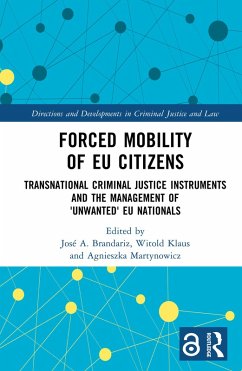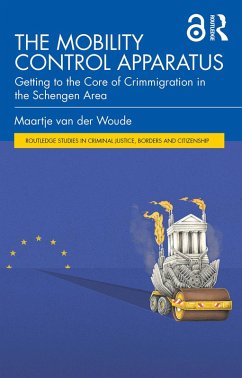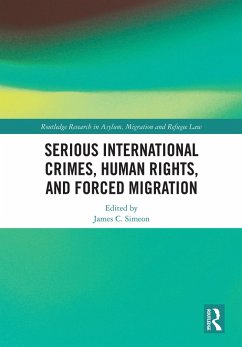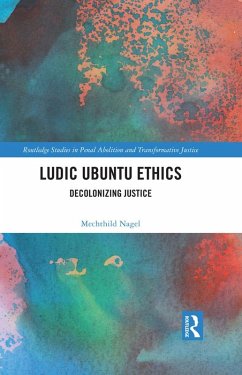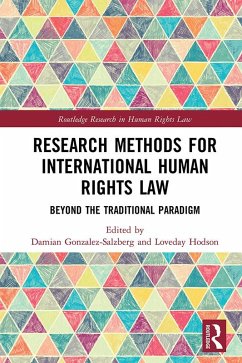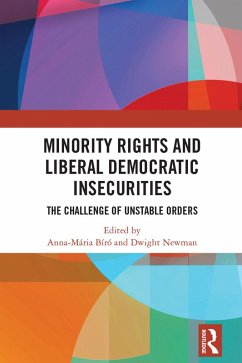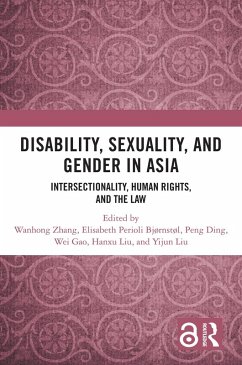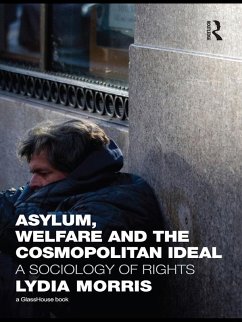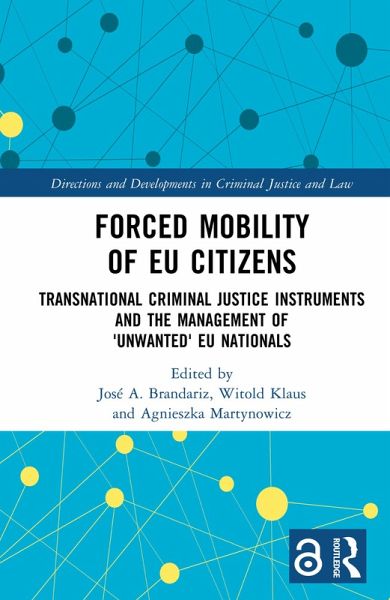
Forced Mobility of EU Citizens (eBook, ePUB)
Transnational Criminal Justice Instruments and the Management of 'Unwanted' EU Nationals
Redaktion: Brandariz, José A.; Martynowicz, Agnieszka; Klaus, Witold
Versandkostenfrei!
Sofort per Download lieferbar
0,00 €
inkl. MwSt.
Weitere Ausgaben:

PAYBACK Punkte
0 °P sammeln!
Forced Mobility of EU Citizens is a critical evaluation from an empirical perspective of existing practices of the use of transnational criminal justice instruments within the European Union. Such instruments include the European Arrest Warrant (EAW), prisoner transfer procedures and criminal law-related deportations.The voices and experiences of people transferred across internal borders of the European Union are brought to the fore in this book. Another area explored is the scope and value of EU citizenship rights in light of cooperation not just between judicial authorities of EU Member Sta...
Forced Mobility of EU Citizens is a critical evaluation from an empirical perspective of existing practices of the use of transnational criminal justice instruments within the European Union. Such instruments include the European Arrest Warrant (EAW), prisoner transfer procedures and criminal law-related deportations.
The voices and experiences of people transferred across internal borders of the European Union are brought to the fore in this book. Another area explored is the scope and value of EU citizenship rights in light of cooperation not just between judicial authorities of EU Member States, but criminal justice systems in general, including penitentiary institutions. The novelty of the book lays not only in the fact that it brings to the fore a topic that so far has been under-researched, but it also brings together academics and studies from different parts of Europe - from the west (i.e. the expelling countries) and the east (the receiving countries, with a special focus on two of the jurisdictions most affected by these processes - Poland and Romania). It therefore exposes processes that have so far been hidden, shows the links between sending and receiving countries, and elaborates on the harms caused by those instruments and the very idea of 'justice' behind them. This book also introduces a new element to deportation studies as it links to them the institution of the European Arrest Warrant and EU law transfers targeting prisoners and sentenced individuals.
With a combination of legal, criminological, and sociological perspectives, this book will be of great interest to scholars and students with an interest in EU law, criminal law, transnational criminal justice, migration/immigration, and citizenship.
The Open Access version of this book, available at www.taylorfrancis.com, has been made available under a Creative Commons Attribution 4.0 International license and funded by Polish Academy of Sciences, Institute of Law Studies.
The voices and experiences of people transferred across internal borders of the European Union are brought to the fore in this book. Another area explored is the scope and value of EU citizenship rights in light of cooperation not just between judicial authorities of EU Member States, but criminal justice systems in general, including penitentiary institutions. The novelty of the book lays not only in the fact that it brings to the fore a topic that so far has been under-researched, but it also brings together academics and studies from different parts of Europe - from the west (i.e. the expelling countries) and the east (the receiving countries, with a special focus on two of the jurisdictions most affected by these processes - Poland and Romania). It therefore exposes processes that have so far been hidden, shows the links between sending and receiving countries, and elaborates on the harms caused by those instruments and the very idea of 'justice' behind them. This book also introduces a new element to deportation studies as it links to them the institution of the European Arrest Warrant and EU law transfers targeting prisoners and sentenced individuals.
With a combination of legal, criminological, and sociological perspectives, this book will be of great interest to scholars and students with an interest in EU law, criminal law, transnational criminal justice, migration/immigration, and citizenship.
The Open Access version of this book, available at www.taylorfrancis.com, has been made available under a Creative Commons Attribution 4.0 International license and funded by Polish Academy of Sciences, Institute of Law Studies.
Dieser Download kann aus rechtlichen Gründen nur mit Rechnungsadresse in A, B, BG, CY, CZ, D, DK, EW, E, FIN, F, GR, HR, H, IRL, I, LT, L, LR, M, NL, PL, P, R, S, SLO, SK ausgeliefert werden.




